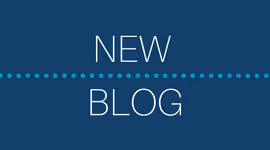It all starts with frustrations and good ideas: Reflections from the ‘Humanitarian Innovation Forum 2018’

“If at first the idea is not absurd, then there is no hope for it.” (Albert Einstein)
The world is facing a growing number of acute, complex and prolonged conflicts, the number of displaced people is peaking and the funding gap for humanitarian assistance has never been bigger. In order to meet the basic needs and live up to our responsibilities, the humanitarian community is constantly on the lookout for new ways to use the scarce resources in the most effective manner, and take best practices to scale. The scope of humanitarian work is changing all the time and this requires humanitarian professionals to be flexible, creative, and risk-tolerant within a confined space.
As a grantee of Elrha's Humanitarian Innovation Fund (HIF), the IRC was invited to present and facilitate group discussions during the ‘Humanitarian Innovation Forum 2018’ that took place in Brussels in June. The ‘Raising the bar for routine M&;E in GBV programming’ project is in its final stages and it was a good opportunity to look back and reflect on the ups and downs we have experienced throughout the innovation cycle.
As with many other innovations, the IRC M&;E project grew out of frustrations and dissatisfaction with current established practices. Why do we continue to focus on outputs (# of providers trained, # of dignity kits distributed, # of awareness sessions) when our entire reason for being is to help survivors of GBV feel that they can cope with their situation and go back to living a fulfilling life, free from violence and stigma in their communities? It grew from knowing that there must be a better way, and insisting on finding a solution.
When the IRC entered the partnership with the HIF, we were quite far in the innovation process. We had recognized the problem, developed a conceptual framework of the change we wanted to see and done a proper literature review on previous efforts to measure psychosocial well-being and felt stigma. The 12 month project has helped us adapt and develop a set of simple M&;E tools that can be routinely used as an integrated part of GBV case management.
Innovation is all about getting that ‘out-of-the-box’ idea, prepare, try, fail, try again, and hopefully succeed eventually. During the past 12 months we too have had to step back, adapt and try again. Let me give you an example; when carrying out client satisfaction surveys at facility level, it is considered good practice to use external ‘auditors’ in order to avoid biases. However after very few weeks of piloting the adapted tools using case managers unknown to the client, we had to reassess the approach. Feedback from the clients, showed that they were not comfortable discussing sensitive issues concerning their well-being with anyone other than the trusted case manager they already knew. This was a bump at the time, but eventually we came up with an approach whereby the tools are integrated into the case management session and not a separate intervention for measurement purposes. The tools now meet the need for measurement of psychosocial well-being and felt stigma, they help the case manager evaluate the progress and most importantly, the GBV survivor feels safe and respected in the process. Win, win, win.
All this to support the fact that innovation involves risk taking and the willingness to change tracks in the process. It also proves the point that innovation is a collaborative process. Primary responders are experts in identifying challenges; technical professionals have the expertise in researching and testing the ideas; and end users will eventually tell you if your great idea was actually just an idea.

Stay updated
Sign up for our newsletter to receive regular updates on resources, news, and insights like this. Don’t miss out on important information that can help you stay informed and engaged.
Related articles


.png)
Explore Elrha
Learn more about our mission, the organisations we support, and the resources we provide to drive research and innovation in humanitarian response.